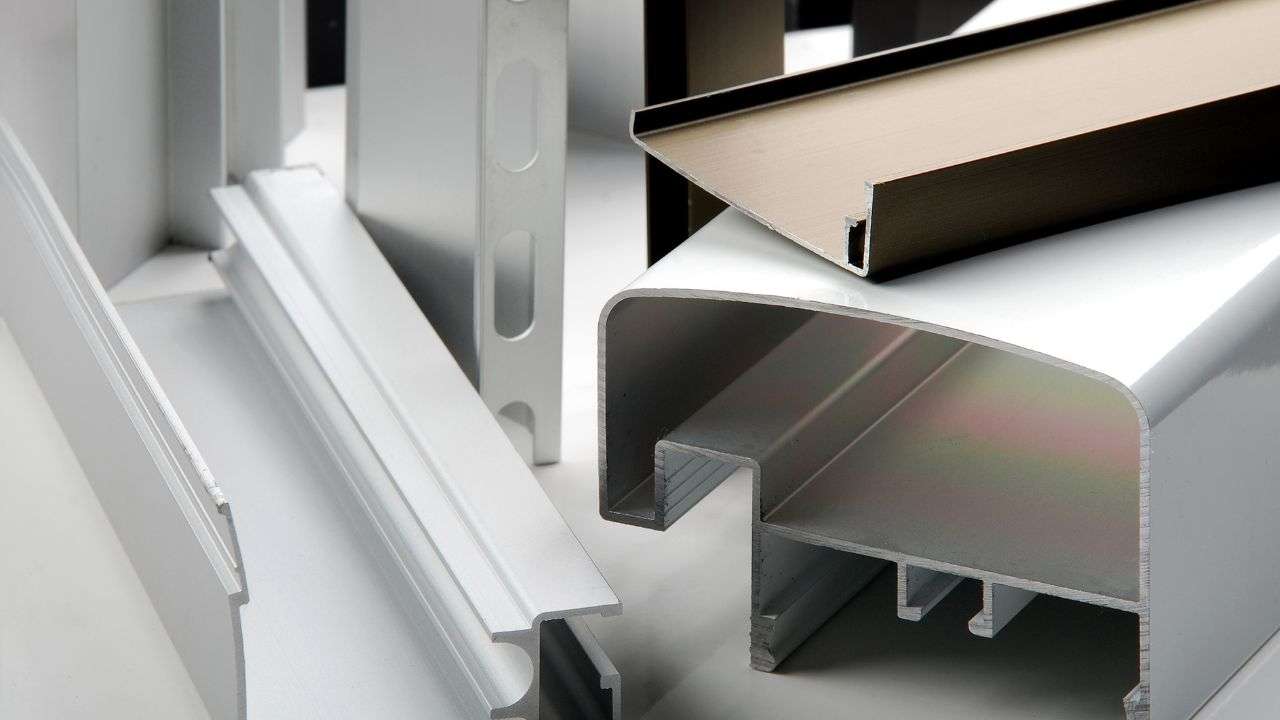Anti-dumping Duty Petitions on Aluminum Extrusions from Vietnam to the United States


Anti-dumping on aluminum extrusions from Vietnam
New anti-dumping and countervailing duty petitions on US aluminum extrusions from Vietnam and 14 other countries.
Overview of anti-dumping on aluminum extrusions from Vietnam
On October 4, 2023, a coalition of US Aluminum Extruders Coalition and the United Steel, Paper and Forestry, Rubber, Manufacturing, Energy, Allied Industrial and Service Workers International Union filed a request for an Anti-Dumping (“AD”) investigation on aluminum extrusion products from Vietnam and 14 other countries including: Colombia, Dominican Republic, Ecuador, India, Indonesia, Italy, Malaysia, Mexico, China, South Korea, Taiwan, Thailand, Turkey, UAE; and Anti-subsidy investigation (“CVD”) with the same products from 4 countries: Indonesia, Mexico, China and Turkey.
According to the US AD law, Anti-Dumping tax is a special tax, applied to dumped goods to prevent imported goods being sold in the United States at a price lower than the “normal value”. ”; Anti-subsidy duties are imposed against imports sold in the US that receive import subsidies from foreign governments.
To impose AD/CVD duties, in addition to determining that dumping and/or subsidies are occurring, the U.S. government must also determine that there is “substantial injury” (or threat of material injury) resulting from imported goods are dumped and/or subsidized to the domestic industry. Importers are responsible for any potential AD/CVD taxes that apply. In addition, these investigations may impact consumers by increasing prices and/or reducing the supply of aluminum extrusions from the 15 countries mentioned above, including Vietnam.
1. Scope of goods proposed for investigation of anti-dumping on aluminum extrusions from Vietnam
The goods under investigation are aluminum extrusions, regardless of form, finishing or fabrication, assembled with other components or unassembled, coated, painted, anodized or heat-treated. Extruded aluminum has shapes produced by an extrusion process, made from aluminum alloys whose metallic compositions correspond to the alloy series designations published by the Aluminum Association beginning with the numbers 1, 3 and 6 (or their proprietary equivalent or other certification body’s equivalent).
According to the Plaintiff, the imports described within the scope of the investigation are currently mainly goods with HS codes (according to the Harmonized Tariff Schedule of the United States) 04.10.1000; 7604.10.3000; 7604.10.5000; 7604.21.0010; 7604.21.0090; 7604.29.1010; 7604.29.1090; 7604.29.3060; 7604.29.3090; 7604.29.5050; 7604.29.5090; 7608.10.0030; 7608.10.0090; 7608.20.0030; 7608.20.0090; 7609.00.0000; 7610.10.0010; 7610.10.0020; 7610.10.0030; 7610.90.0040; 7610.90.0080.
2. Estimated tax for anti-dumping on aluminum extrusions from Vietnam
Typically, dumping margins are determined during an investigation by the U.S. Department of Commerce (DOC), based on responses from manufacturers whose goods are identified as mandatory subjects. must submit responses to DOC’s investigation questionnaire. If the manufacturer requested to respond does not respond to the questionnaire, a dumping margin will be assigned based on “existing adverse events,” which is a punitive margin, based on on the basis of the anti-dumping margin in the petition of the Complaining Party.
The dumping margin alleged in the Petitioner’s petition varies between countries, specifically as follows:
| Country | Alleged dumping margin |
| Indonesia | 112.21% |
| Italy | 37.52% |
| Malaysia | 54.87% |
| Mexico | 111.38% |
| China | 256.58% |
| Korea | 66.43% |
| Taiwan | 90.90% to 100.22% |
| Thailand | 84.71% |
| Turkey | 33.79% |
| UAE | 39.80% |
| Vietnam | 53.75% |
Because DOC considers China and Vietnam to be “non-market economies” (“NMEs”), DOC began its investigation with the assumption that all exporters were members of a “pan-China entity” China” or “all-Vietnam entity” run by the government, therefore will be subject to “all-China” or “all-Vietnam” anti-dumping tax bands.
This margin is often based on “pre-existing adverse events,” making it so high that it can be considered punitive. Companies that demonstrate complete independence from the Chinese or Vietnamese Government can receive their own dumping rates based on their actual data.
In addition, the Plaintiff also alleges significant subsidies from China, Indonesia, Mexico and Turkey for goods exported from their countries, but the petition does not quantify the specific level of subsidies.
3. Process of anti-dumping on aluminum extrusions from Vietnam
The Anti-Dumping and Anti-subsidy investigation process consists of two phases: The opening phase and the final phase. DOC and the US International Trade Commission (ITC) will determine whether aluminum extrusions imported from countries under investigation are dumped into the United States and establish anti-dumping duties to be applied.
Simultaneously the investigation will also reveal whether the Governments of China, Indonesia, Mexico, and Turkey have subsidized Aluminum Extrusions exported to the US.
Anti-dumping investigation period: October 1, 2022 to September 30, 2023, especially for Vietnam and China, from April 1, 2023 to September 30, 2023.
The anti-subsidy investigation period is 2022 and previous years.
4. The proposed investigation schedule of the US Department of Commerce and the US International Trade Commission is as follows
The table below provides the main (approximate) deadlines for DOC and ITC procedures for investigation of anti-dumping on aluminum extrusions from Vietnam.
| ITC releases questionnaires on foreign manufacturers, US importers, and US manufacturers | October 6 or 9, 2023 |
| Questionnaires from foreign manufacturers, US importers, and US manufacturers are due | October 18, 2023 |
| Initialize DOC | October 24, 2023 |
| ITC preliminary conference | October 25, 2023 |
| ITC post-conference summary | October 30, 2023 |
| Preliminary determination of ITC | November 20, 2023 |
| DOC releases CVD questionnaire | November 23, 2023 |
| DOC releases the ADD questionnaire | November 28, 2023 |
| DOC ADD returns due questionnaire | December 19, 2023 |
| DOC CVD responds to the due questionnaire | December 23, 2023 |
| Additional responses to the ADD and CVD questionnaires | Winter/spring 2024 |
| Determine the preliminary CVD of DOC | March 2, 2024 |
| Verification | Spring/Summer 2024 |
| DOC’s preliminary ADD decision | May 1, 2024 |
| Determine the final ADD and CVD of the DOC | September 13, 2024 |
| Final decision of the ITC | October 28, 2024 |
| Make decision | November 4, 2024 |
About ANT Lawyers, a law firm in Vietnam
We help clients overcome cultural barriers and achieve their strategic and financial outcomes, while ensuring the best interest rate protection, risk mitigation and regulatory compliance. ANT lawyers has lawyers in Ho Chi Minh city, Hanoi, and Danang, and will help customers in doing business in Vietnam.
How ANT Lawyers Could Help Your Business?
You could learn more about ANT Lawyers International Trade and Tax or contact our International trade dispute lawyers in Vietnam for advice via email ant@antlawyers.vn or call our office at (+84) 24 730 86 529
Recent Posts
7 Essential Truths to Open an Indirect Investment Account in Vietnam and Grow with Confidence
Do you want to invest overseas into Vietnam? Do you want to open an indirect…
5 Crucial Facts About ESG Laws in Vietnam That Could Save Your Business and Reputation
The Business World Is Changing Fast Rules are shifting. Expectations are rising. Eyes are watching. …
7 Powerful Reasons Why ESG Compliance in Vietnam Will Win You Trust, Growth, and Global Clients
Trust matters. Today, more than ever. Across industries, many companies are now being asked. directly…
7 Bold Reasons Why Tokenization in Vietnam Could Transform Your Future
Change is coming. Quietly. Digitally. Rapidly. Let’s imagine the situation, which assets are no longer…
Vietnam P2P Lending: 5 Bold Reasons Why Decree 94/2025 Could Empower Millions or Backfire?
A New Financial Chapter Begins in Vietnam One person lends. Another borrows. It’s that simple.…
5 Essential Lessons from Risk Management in Digital Assets in Vietnam: Protecting Trust in a Digital World
Trust Is the Real Currency Money can be lost. Tokens can vanish. Platforms can crash.…





